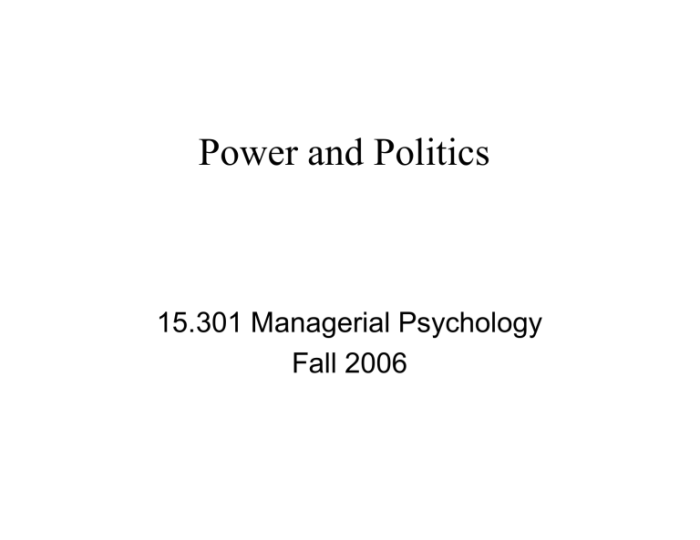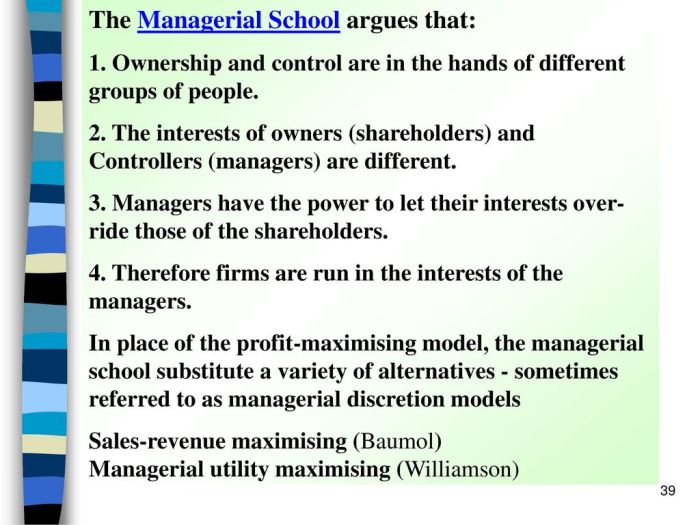Power and influence a managerial thrill ride – Power and influence are essential elements in managerial settings, offering both opportunities and challenges. This engaging narrative explores the nature of managerial power, its sources, and how it is used to influence subordinates. It also examines the potential benefits and risks associated with wielding managerial power, highlighting the ethical considerations and strategies for enhancing influence.
Throughout the discussion, real-world examples illustrate the dynamics of managerial power and influence, providing insights into the complexities and nuances of this critical aspect of leadership.
Managerial Power Dynamics: Power And Influence A Managerial Thrill Ride

Managerial power is the ability to influence the behavior of others. It is a critical tool for managers, as it allows them to achieve their goals and objectives. There are many different sources of managerial power, including formal authority, expertise, charisma, and networking.
Formal authority is the power that comes from a manager’s position in the organization. It gives managers the right to make decisions and to give orders to their subordinates. Expertise is the power that comes from a manager’s knowledge and skills.
Managers who are experts in their field are often able to influence others because they are seen as credible and trustworthy.
Charisma is the power that comes from a manager’s personal魅力. Managers who are charismatic are often able to inspire and motivate their subordinates. Networking is the power that comes from a manager’s relationships with others. Managers who have strong networks are often able to get things done because they have access to information and resources.
Managers can use their power to influence others in a variety of ways. They can use it to reward or punish their subordinates, to persuade them, or to coerce them. The most effective managers use their power in a way that is both ethical and effective.
The Influence of Managerial Power
Managers can influence their subordinates in a variety of ways. They can use their formal authority to give orders, or they can use their expertise to persuade them. They can also use their charisma to inspire them or their networking skills to build relationships with them.
The effectiveness of managerial influence depends on a number of factors, including the manager’s power base, the subordinate’s susceptibility to influence, and the situation.
Managers with a strong power base are more likely to be able to influence their subordinates. Subordinates who are more susceptible to influence are more likely to be persuaded by their managers. And situations that are more favorable to influence are more likely to result in successful attempts at managerial influence.
The Thrills and Risks of Managerial Power
Managerial power can be a thrilling experience. It gives managers the opportunity to make a difference in the world and to achieve their goals. However, managerial power also comes with risks. Managers who abuse their power can damage their relationships with their subordinates, their careers, and even their organizations.
Some of the potential benefits of wielding managerial power include the ability to make a difference in the world, to achieve one’s goals, and to earn respect and admiration. However, there are also some potential risks and challenges associated with managerial power, such as the potential for abuse, the potential for isolation, and the potential for burnout.
Ethical Considerations in Managerial Power, Power and influence a managerial thrill ride
Managers have a responsibility to use their power ethically. This means using their power to benefit others, not just themselves. It also means respecting the rights of their subordinates and treating them fairly.
There are a number of potential consequences of unethical uses of managerial power. These consequences can include damage to the manager’s reputation, damage to the organization’s reputation, and legal liability.
Strategies for Enhancing Managerial Power and Influence
There are a number of strategies that managers can use to enhance their power and influence. These strategies include building relationships, developing expertise, and fostering a positive work environment.
Building relationships is one of the most important things that managers can do to enhance their power and influence. When managers have strong relationships with their subordinates, they are more likely to be able to persuade them and to get them to cooperate.
Developing expertise is another important way to enhance managerial power and influence. When managers are experts in their field, they are more likely to be seen as credible and trustworthy. This makes it easier for them to persuade others and to get them to follow their lead.
Fostering a positive work environment is also important for enhancing managerial power and influence. When managers create a positive work environment, their subordinates are more likely to be motivated and productive. This makes it easier for managers to achieve their goals and objectives.
FAQ Compilation
What are the different sources of managerial power?
Formal authority, expertise, charisma, control over resources, and personal networks are common sources of managerial power.
How can managers effectively use power to influence others?
By building relationships, communicating effectively, setting clear expectations, and providing support and resources, managers can increase their influence over subordinates.
What are the potential risks and challenges associated with managerial power?
Abuse of power, resistance from subordinates, ethical dilemmas, and burnout are potential risks and challenges associated with managerial power.


